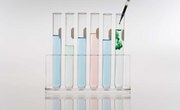Critical thinking, that is the mind’s ability to analyze claims about the world, is the intellectual basis of the scientific method. The scientific method can be viewed as an extensive, structured mode of critical thinking that involves hypothesis, experimentation and conclusion.
Critical Thinking
Broadly speaking, critical thinking is any analytical thought aimed at determining the validity of a specific claim. It can be as simple as a nine-year-old questioning a parent’s claim that Santa Claus exists, or as complex as physicists questioning the relativity of space and time. Critical thinking is the point when the mind turns in opposition to an accepted truth and begins analyzing its underlying premises. As American philosopher John Dewey said, it is the “active, persistent and careful consideration of a belief or supposed form of knowledge in light of the grounds that support it, and the further conclusions to which it tends.”
Hypothesis
Critical thinking initiates the act of hypothesis. In the scientific method, the hypothesis is the initial supposition, or theoretical claim about the world, based on questions and observations. If critical thinking asks the question, then the hypothesis is the best attempt at the time to answer the question using observable phenomenon. For example, an astrophysicist may question existing theories of black holes based on his own observation. He may posit a contrary hypothesis, arguing black holes actually produce white light. It is not a final conclusion, however, as the scientific method requires specific forms of verification.
Experimentation
The scientific method uses formal experimentation to analyze any hypothesis. The rigorous and specific methodology of experimentation is designed to gather unbiased empirical evidence that either supports or contradicts a given claim. Controlled variables are used to provide an objective basis of comparison. For example, researchers studying the effects of a certain drug may provide half the test population with a placebo pill and the other half with the real drug. The effects of the real drug can then be assessed relative to the control group.
Conclusion
In the scientific method, conclusions are drawn only after tested, verifiable evidence supports them. Even then, conclusions are subject to peer review and often retested before general consensus is reached. Thus, what begins as an act of critical thinking becomes, in the scientific method, a complex process of testing the validity of a claim. English philosopher Francis Bacon put it this way: “If a man will begin with certainties, he shall end in doubts; but if he will be content to begin with doubts, he shall end in certainties.”
Related Articles
References
- How We Think: John Dewey
- The Advancement of Learning: Francis Bacon
Writer Bio
Scott Neuffer is an award-winning journalist and writer who lives in Nevada. He holds a bachelor's degree in English and spent five years as an education and business reporter for Sierra Nevada Media Group. His first collection of short stories, "Scars of the New Order," was published in 2014.











